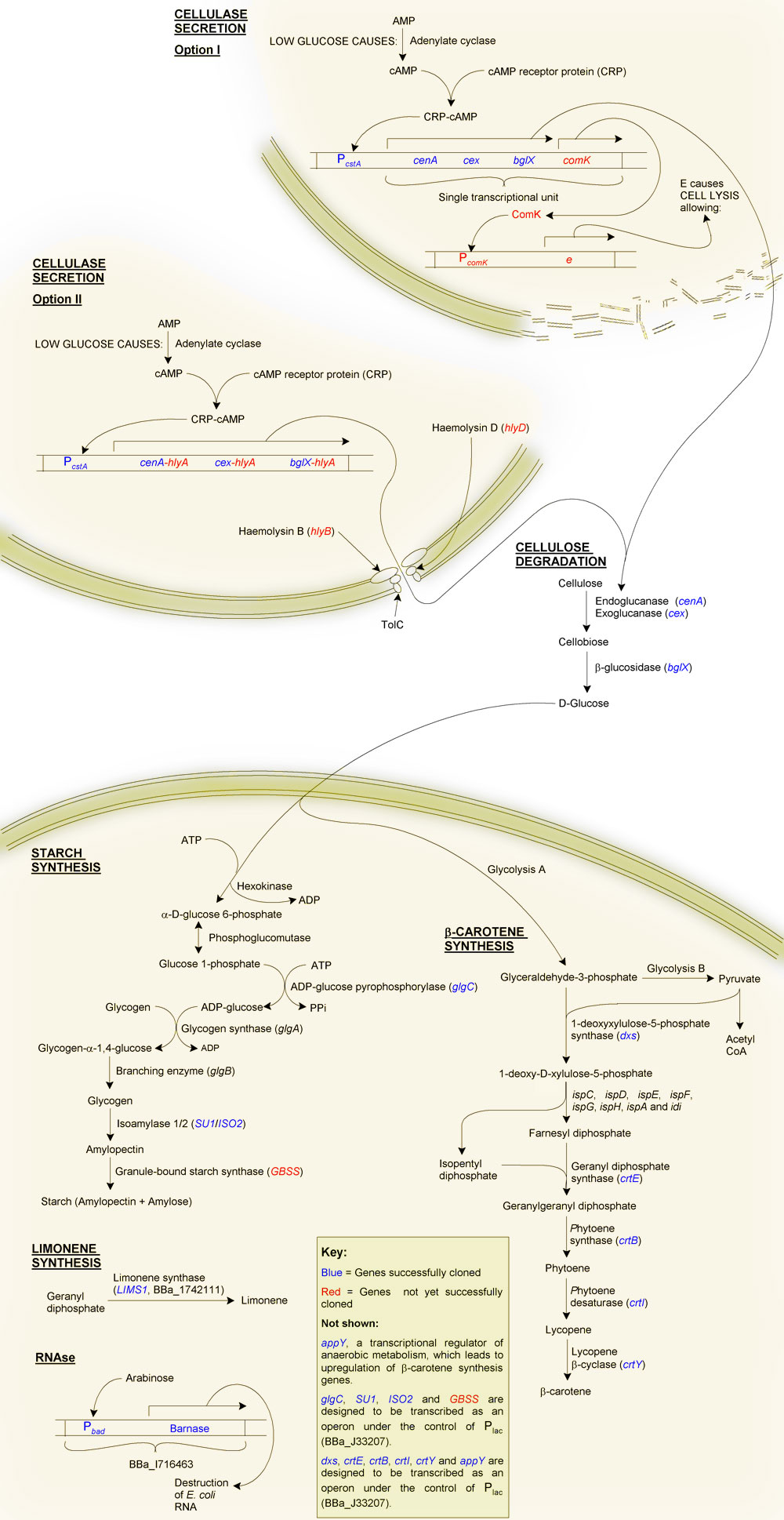Team:Edinburgh/Project
From 2008.igem.org
(→Saving the World) |
|||
| Line 290: | Line 290: | ||
For more information, please see our [https://www.wiki.ed.ac.uk/display/iGEM2008/HOME our internal wiki]. | For more information, please see our [https://www.wiki.ed.ac.uk/display/iGEM2008/HOME our internal wiki]. | ||
| - | ==Saving the World== | + | ==Our Objective: Saving the World== |
"Cellulose is the most abundant form of fixed carbon, with 100,000,000,000 tons produced in cell walls by plants each year" [http://www.blackwell-synergy.com/doi/full/10.1196/annals.1419.026 (Wilson, 2008)]. | "Cellulose is the most abundant form of fixed carbon, with 100,000,000,000 tons produced in cell walls by plants each year" [http://www.blackwell-synergy.com/doi/full/10.1196/annals.1419.026 (Wilson, 2008)]. | ||
| Line 297: | Line 297: | ||
Engineering a biological system to convert cellulose into starch would be one of the best ways to solve this problem. It is therefore our principal objective. Our project mainly revolves around two types of genes: genes to break down cellulose into glucose and genes to synthesise starch from glucose. We hope to construct such a conversion system in either ''E. coli'' or ''Bacillus subtilis''. Applications of our final starch product will be twofold: for biofuel production and for human and animal nutrition. | Engineering a biological system to convert cellulose into starch would be one of the best ways to solve this problem. It is therefore our principal objective. Our project mainly revolves around two types of genes: genes to break down cellulose into glucose and genes to synthesise starch from glucose. We hope to construct such a conversion system in either ''E. coli'' or ''Bacillus subtilis''. Applications of our final starch product will be twofold: for biofuel production and for human and animal nutrition. | ||
| + | |||
| + | ==Flowchart== | ||
| + | |||
| + | [[Image:Edinburgh_Flowchart.jpg|500px]] | ||
==Calendar== | ==Calendar== | ||
[[Image:Calendar.jpg]] | [[Image:Calendar.jpg]] | ||
Revision as of 14:47, 31 July 2008
For more information, please see our our internal wiki.
Our Objective: Saving the World
"Cellulose is the most abundant form of fixed carbon, with 100,000,000,000 tons produced in cell walls by plants each year" [http://www.blackwell-synergy.com/doi/full/10.1196/annals.1419.026 (Wilson, 2008)].
A food shortage is engulfing the entire world, pushing food prices to new highs. An essay from the [http://www.earthpolicy.org/Updates/2008/Update72.htm Earth Policy Institute] (16 April 2008) disscusses its significance to our lives. The food shortage not only harms the economy but also overburdens the environment, putting the future of the human race in peril.
Engineering a biological system to convert cellulose into starch would be one of the best ways to solve this problem. It is therefore our principal objective. Our project mainly revolves around two types of genes: genes to break down cellulose into glucose and genes to synthesise starch from glucose. We hope to construct such a conversion system in either E. coli or Bacillus subtilis. Applications of our final starch product will be twofold: for biofuel production and for human and animal nutrition.
 "
"

